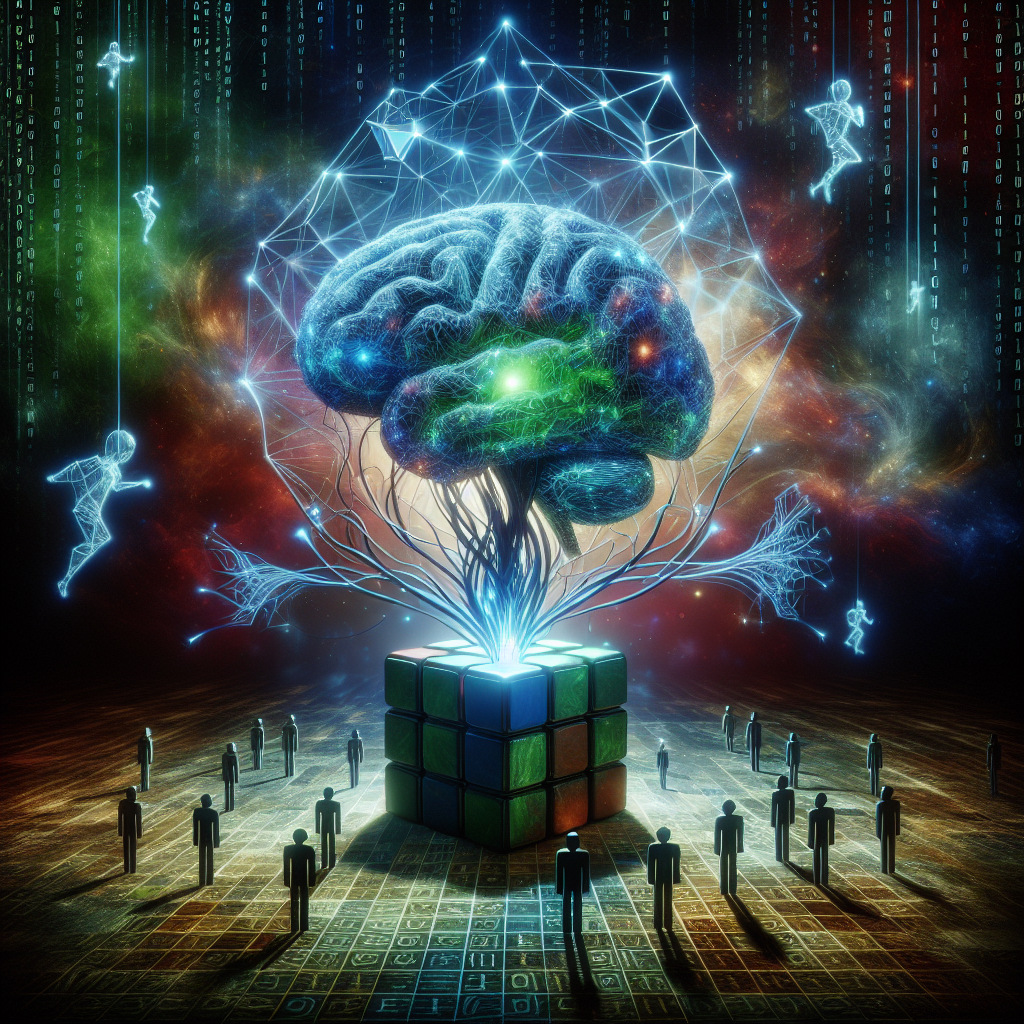Navigating the AI Evolution in Gaming: From Theory to Inevitable Reality
The landscape of gaming is on the precipice of a revolution, one that is silently gaining momentum behind the screens of deep learning and artificial intelligence (AI). This technological evolution is not just a fleeting trend but an impending wave set to reshape our gaming experiences. With this in mind, let's embark on a journey to dissect the current state of AI in gaming, predict its trajectory, and understand the implications for gamers and developers alike.
The Dawn of AI in Consumer Tech
When considering AI's role in gaming, it's crucial to recognize the foundational work that has brought the industry to this tipping point. The integration of AI models within games is not a futuristic concept; it's already plausible on today's consumer hardware. What's more, the scalability of these models presents a path toward incremental upgrades that could blend seamlessly into game development cycles.
However, it’s not merely the processing power of current hardware that sets boundaries—it's also the limitations of RAM that present a challenge. Gamers clutching onto their 8GB GPUs may find themselves at a crossroads, balancing the desire for AI-enhanced titles with the limits of their rigs.
The Memory Bottleneck and Its Impact
As we stand at the crossroads of AI's integration into gaming, a critical bottleneck arises: memory. Modern von Neumann architecture, upon which our computers are built, is fundamentally ill-suited for the back-and-forth data dance required by AI processes. The result? A memory bottleneck that could stifle AI advancements unless computer architectures evolve to meet the demands of AI computation.
AI-Ready Hardware: The New Gaming Prerequisite
Looking ahead, the conversation shifts from theoretical possibilities to tangible consumer advice. Gamers in the market for a new laptop or desktop face a dichotomy: opt for a deal today or prepare for an AI-ready tomorrow. As AI applications begin to emerge, the longevity and relevance of current hardware are called into question.
The AI readiness of a system now enters the checklist for forward-thinking consumers. The discerning gamer must weigh the merits of higher teraflops against the impending reality of AI's memory demands.
Consumer NPU Adoption: A Slow Burn Towards Ubiquity
The arrival of NPUs (Neural Processing Units) in consumer tech, such as AMD's AI engine in its APUs, marks a pivotal moment. This technology is not just planting a flag for the future but actively seeding the market with machine learning capabilities. However, this initiative extends beyond the immediate availability of AI applications. It's about catalyzing a movement, nudging developers to harness these tools and consumers to anticipate their benefits.
For more in-depth insights into AI's role in gaming hardware, consider exploring resources like NVIDIA's AI Research or AMD's advancements in AI for further context.
The Timeline: From Indie Innovations to Triple-A Triumphs
A speculative glance into the future reveals a staggered yet steady integration of AI in gaming. We can expect a quirky indie title leveraging AI as early as 2024, followed by more earnest attempts by double-A developers in the ensuing years. By 2027, we may see the first major triple-A titles harnessing the full potential of AI — a timeline that coincides with the anticipated arrival of next-generation consoles.
AI in Gaming: A Catalyst for Next-Gen Hardware
The AI transition in gaming is not isolated to software. It poses a direct influence on the development of next-gen consoles. Sony and Microsoft will likely grapple with the integration of AI capabilities into their hardware, balancing custom designs against off-the-shelf solutions. This will not only impact the performance but also the architecture, paving the way for computing paradigms optimized for AI workloads.
Realizing the AI Gaming Dream: More Than Just Horsepower
It's clear that the industry is edging toward an AI-driven future, but realization requires more than raw performance. Collaboration between hardware manufacturers, game developers, and software ecosystems will be vital. As we approach these new horizons, the entire gaming community — from AAA studios to indie developers, from PC gamers to console enthusiasts — must prepare for a transition that promises to redefine the interactive digital experience.
In this nuanced landscape, the AI evolution in gaming emerges as a potential gold mine for those who can adeptly navigate its challenges. It promises a future where our games are not just played but experienced in ways that are as dynamically intelligent as they are graphically impressive. The question now is not if, but how swiftly we can adapt to harness the full spectrum of AI's offerings in gaming. The game is on, and AI is set to change the rules forever.
Related News
- The Evolving Gaming Hardware Landscape: Insights and Speculations
- The Evolving Landscape of PC Gaming: Enthusiasts, AI Integration, and the Race for Power Efficiency
- The Rising Tide of AI Integration: A Comprehensive Look into Recent Developments
- Navigating the AI Tsunami: A Deep Dive into the Currents Shaping Our Digital Future
- The Chess Game of AI Innovations: A Deep Dive into Recent Developments
